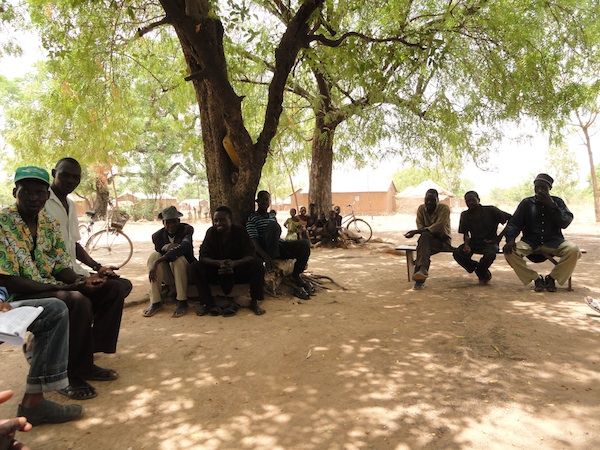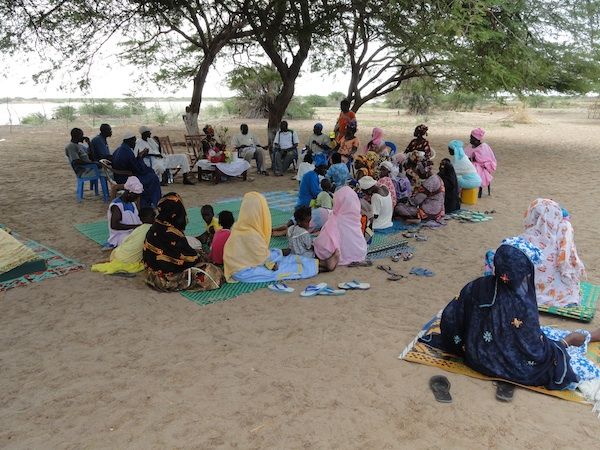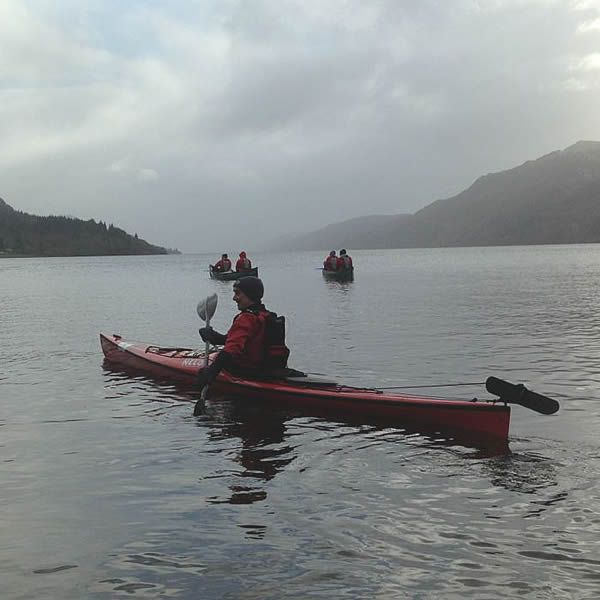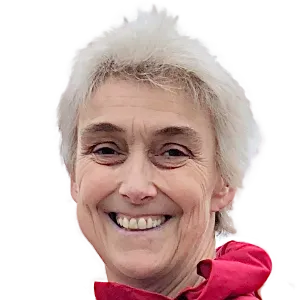Nonie Coulthard
I am lucky enough to have a life-long interest in nature conservation and people, which I've been able to develop as a career. Most of my working life has been spent supporting conservation and international development in Africa, as well as nature conservation and ‘people’ issues closer at home, in Scotland.
From 2008 to 2012, we lived as a family in British Columbia (Vancouver Island), in order to experience life and work in a different country and culture. Whenever possible, husband Bill and I work together, through Logical Cobwebs. In practice, this doesn’t happen often – but we usually share an office (3½ years in leafy, rural Metchosin, BC with glimpses of the Pacific Ocean from the end of the drive) and now back at the foot of the lovely Angus Glens, with Lintrathen Loch only a few seconds’ walk away.
My passion for working with people and conservation in Africa began in Sénégal, West Africa, where I lived for 2½ years in the early 1980s. I carried out research on African bee-eaters (as a penniless student!) and the experience was life changing. I travelled throughout the country, became fluent in French and experienced all the joys of getting to know people of a different culture and a very different way of life. Sénégal is a fantastic country - incredible wildlife, landscapes from semi-desert to rain forest and spectacular coastlines, vibrant music and dance and culture, wonderful cuisine. I struggled to get enough data for my PhD but on my return, I was incredibly fortunate to work in the south of France (the Camargue) for several summers with researchers from Oxford and Sheffield Universities. Thanks to Drs Avery, Krebs and especially Lessells, I was able to join a long-term bee-eater research project and carry out my own research. The friendship, horses, wildlife, food, wine and way of life in the Camargue (and specifically at the Tour du Valat research centre) are fantastic and I have many long-lasting friendships and collaborations from those days too.
In 1987 I joined RSPB (Royal Society for the Protection of Birds, UK) International Department and spent 6 months on European projects before moving to manage the Africa Programme. This included support to developing African NGOs and biodiversity conservation projects in Ghana, Nigeria and a new one I initiated with the Forestry Department in Sierra Leone (probably my favourite African country) in the early 1990s. (That project and the work of many Leoneans and others led recently to the declaration of Sierra Leone's second National Park - Gola Rainforest). Soon after this, I was seconded from RSPB to BirdLife International where I was Head of Africa Division for about 5 years, responsible for strategic planning and development of the BirdLife Africa Programme, managing projects, fund raising, liaison and negotiation with governments and donors; and supporting the development and capacity building of national conservation NGOs which make up the BirdLife Africa Partnership. I have worked in more than half of the countries in Africa and made many long-lasting friendships. In recent years I have worked frequently in West and East Africa as a consultant and it is hugely rewarding to see the BirdLife African Partnership and programme going from strength to strength, with Secretariats in Nairobi and Accra, and many of the young Africans I worked with in the ‘80s and ‘90s now fully established and influential conservationists in key positions across the continent.

People gathered under trees in Togo
I switched to contract work in 1995 when I left BirdLife (a very sad occasion!) and moved with Bill to live in Scotland as a consultant working on a wide variety of biodiversity conservation, policy research, literature review, project management and evaluation and other projects, internationally and in Scotland. Clients included the Scottish Government, Scottish Natural Heritage, the National Trust for Scotland, WWF Scotland, BirdLife International, UNDP and the World Bank. I travelled rather less for a few years while raising a young family but usually completed one or two international contracts a year and also worked as a Board Member on public bodies (SNH and the Cairngorms National Park Authority - in Britain's largest and Scotland's newest National Park). I loved the work in the Cairngorms National Park and I particularly enjoyed using relevant experiences from elsewhere (Africa) to try to help find solutions to people/ conservation issues. The underlying principles and importance of consulting local people and taking account of the needs for socio-economic development, jobs, livelihoods etc. - alongside biodiversity conservation and real sustainable use of natural resources - are pretty much the same, even in very different geographic, cultural and economic contexts.

People gathered under some trees in Senegal
In 2008, we made our move to live on and explore the Pacific coast of Canada for a while. It was a much harder move than we anticipated – both in terms of culture shock and the huge bureaucratic hurdles of moving to a country which we assumed would be similar in many ways to Scotland (but wasn’t!). I also found it harder than I expected to obtain work but luckily enough I was able to carry on international consultancies, mainly for the UNDP and the Global Environment Facility (GEF) in Africa (despite the additional coast of flying me across the Atlantic to get there!). This included a return visit to Sénégal
- my first visit back there for over 20 years, where I had the great good fortune to work with a very old friend and colleague, M. (Colonel) Seydina Issa Sylla, who was Sénégal's Director of National Parks for many years and is one of the country's foremost biodiversity experts.
Imarisha Naivasha
Jump to section titled: Imarisha NaivashaIn 2012, I carried out a 3-month consultancy in Kenya (in between also completing our family move back to Scotland in August of the same year) to prepare the first Five Year Sustainable Development Action Plan (SDAP) for Imarisha Naivasha (“Arise Naivasha”). This is a novel multi-stakeholder Board (principally community/ user groups and private sector, with local and national government representation and direct support of the then Prime Minister). Imarisha Naivasha was established (with international support from Prince Charles’ Sustainability Initiative) to ensure sustainable water and natural resource use and ecological restoration of Lake Naivasha and the whole Naivasha Basin. In addition to the SDAP, I worked with WWF Kenya, Imarisha Naivasha and partners on funding applications to implement parts of the Plan, including a 4-year, 4 million USD budget secured from the Embassy of the Kingdom of the Netherlands in Nairobi.
In between work and family I have always been a keen outdoor sports person and happily my family also love the outdoors! At University in Dundee I was a member of the Scottish Kayak Slalom team (national champion in 1979). I have ridden horses all my life (a very useful skill in the Camargue) and also enjoy cross-country skiing, hill running and sea kayaking. In 2003 to 2006 Bill and I both took part in the Hebridean Challenge - a fantastic, friendly five-day team race, full of challenges, along the length of the Outer Hebrides (sadly, now no longer running). In years when we weren’t racing we also marshaled the event (with dogs and children helping) and continued to fall under the spell of the wonderful Scottish west coast and the Hebrides. We loved our time in the outdoors in BC but for me, the Hebrides wins hands down and is now once again only a short drive and a ferry ride or two away! New challenges now we are back in the Angus Glens include our many local hills and running/ mountain bike routes; loch, sea and river paddling and the Great Glen Paddle from Fort William to Inverness in March 2014.

Kayaking on Loch Ness
